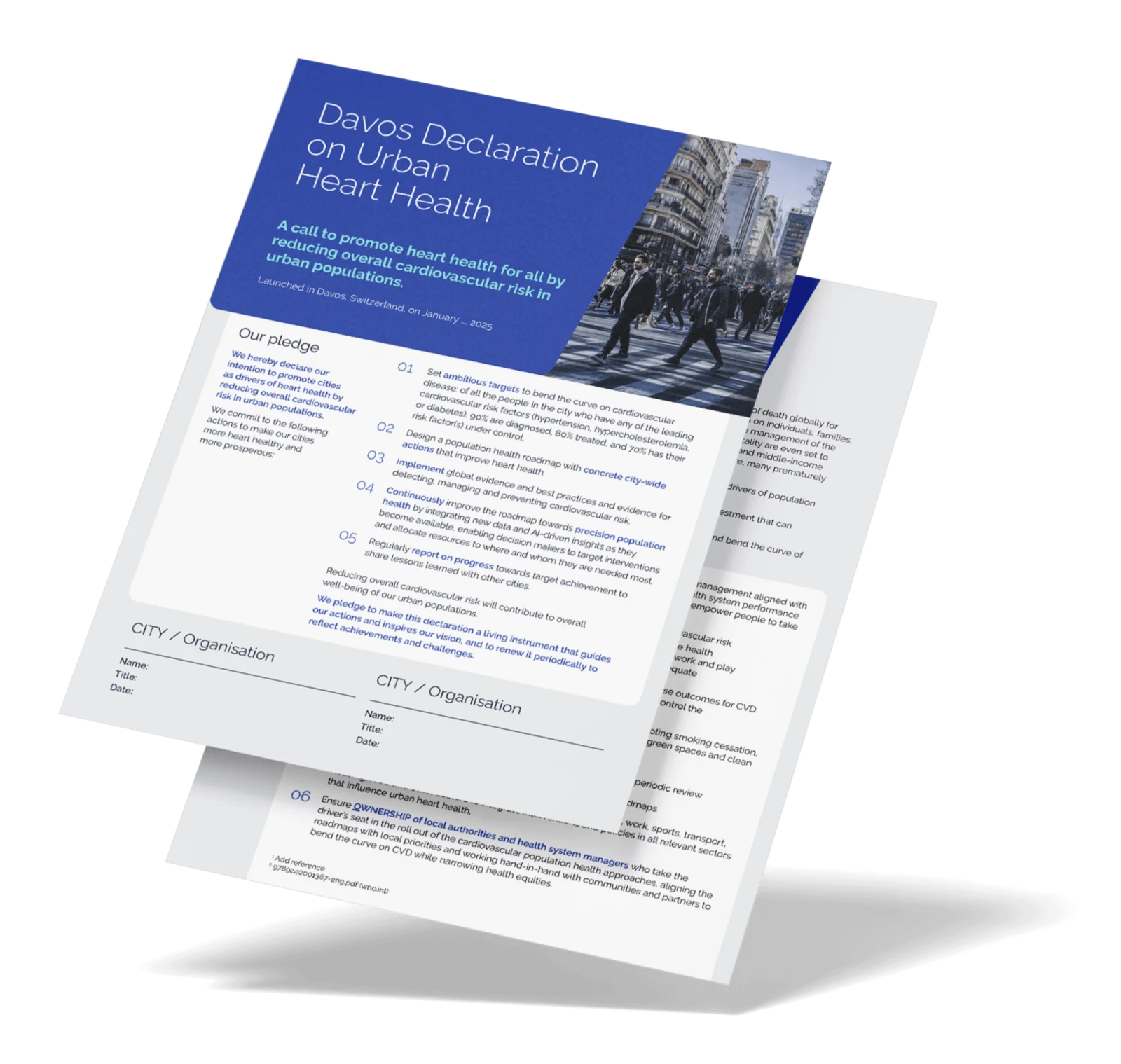Cardiovascular disease (CVD) has been the most common cause of death globally for both women and men. While it’s mostly preventable, it imposes a heavy burden on individuals, families, communities, and health systems.1 Although ample evidence exists on how to improve management of the disease, the world seems unable to bend the curve of CVD. Its overall burden and mortality are even set to rise in the coming decades, and disproportionally so in underserved populations. Low and middle-income countries are increasingly affected, with 4 out of 5 cardiovascular deaths occurring there, many prematurely before the age of 60.
As 70% of the world’s population will live in cities by 2050 and cities have proven to be drivers of population health, urban settings are an excellent place to start addressing this urgent issue.2
Cities have a unique opportunity – and responsibility – to lead action toward targets and implement validated approaches to improve population health at scale.
Two established partners leading action towards improved cardiovascular population health, the World Heart Federation and the Novartis Foundation, are initiating a new global movement: the Davos Declaration on Urban Heart Health. This call to action is aimed at cities around the globe, given that cities are at the forefront of experiencing the impact of cardiovascular disease on patients, their families and communities, and economies.
This Declaration invites cities to:
- Set targets for prevalence, diagnosis, treatment, and control of hypertension, type 2 diabetes, and high cholesterol
- Develop and implement data-driven and intersectoral population health roadmaps to achieve these targets with focus on early cardiovascular risk factor detection and control
- Share data on progress towards targets annually
- Actively participate in the Global Network of CARDIO Cities to collaborate, share insights, and learn from each other
By adopting the Davos Declaration on Urban Heart Health, city leaders and local healthcare decision makers have a unique opportunity to join like-minded cities that are challenging the status quo and embracing new approaches to tackle cardiovascular disease.
This Network of CARDIO Cities, based on the Novartis Foundation’s successful and effective population health approach CARDIO4Cities, presents city leaders and local health authorities with the opportunity to engage in fruitful dialogues and consistently improve heart health in their jurisdictions.
Sign up to receive more information about the CARDIO4Cities Network
Sign the Declaration
We process your information in accordance with our Privacy Policy.
"*" indicates required fields
